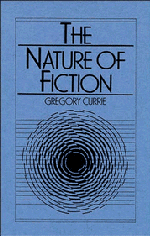Chapter 4 - THE CHARACTERS OF FICTION
Published online by Cambridge University Press: 05 November 2011
Summary
Fictional characters begin their lives in fictional stories. They may have antecedents in real life or in mistaken accounts of real life, but we can properly say that we have a fictional character only when we have a fictional story, however imprecise, that enfolds the character. We might think fictional characters capable of transcending the fictions they arrive in. Faust, Holmes, and others appear in a variety of works in a variety of media, with different authors contributing their own perspectives. Or so we say. I shall argue that we ought not to say such things, or at least that we ought not to take such things seriously when we do. But even if one thinks of fictional characters as thoroughly promiscuous in their relations to fictional works, it is hard to believe that we can learn anything about them by casting aside the stories in which they appear and searching for the characters themselves. I am very far from believing that we can, in general, think about the world only by thinking about the language we use to describe it. But with fictional characters there does not seem to be any other way. Accordingly, my focus in this chapter will be on the ways in which we describe fictional characters and, in particular, on the ways in which we use expressions that purport to be names of them.
- Type
- Chapter
- Information
- The Nature of Fiction , pp. 127 - 181Publisher: Cambridge University PressPrint publication year: 1990



